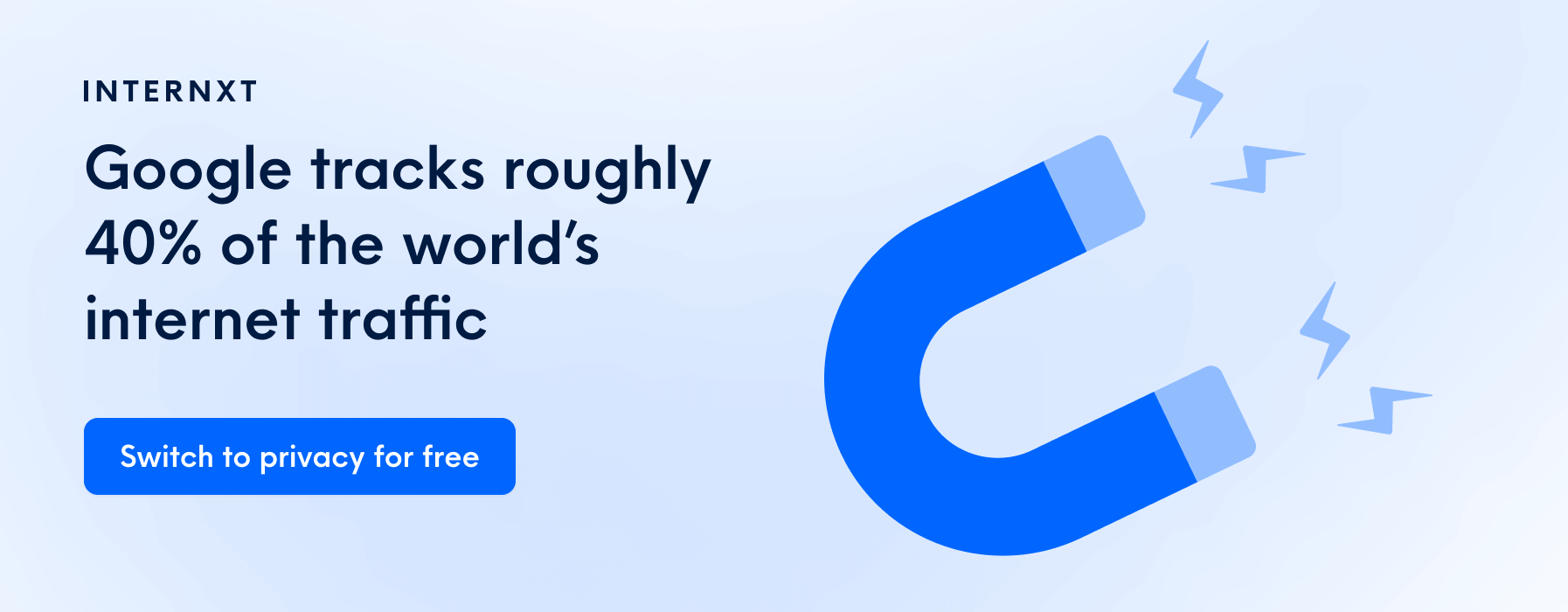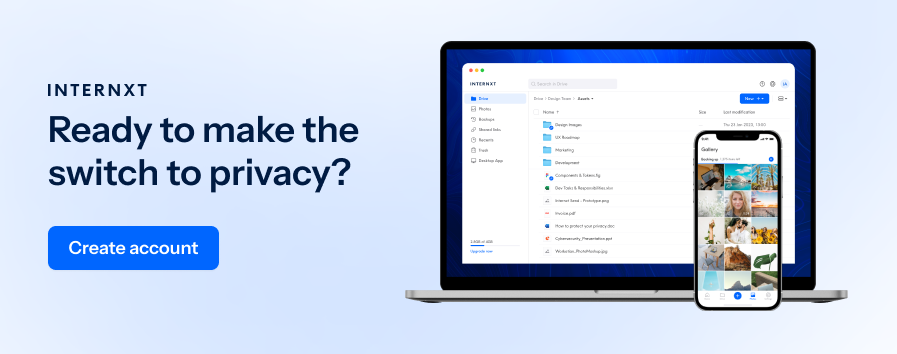Privacy vs Anonymity: What’s the Difference and Why They Matter

With all the new online products and services coming out, you see a lot of buzzwords used to describe them—private, anonymous, secure, open-source, safe, encrypted. News flash, words have meanings, and the terms used to describe something can give you a big hint to what that thing does well.
Privacy and anonymity, or "private" and "anonymous," are two words that are frequently used interchangeably to mean no one is watching you or knows what you are up to. But in reality, these two terms mean something entirely different from one another. Just because a web service is private does not make it anonymous, and vice versa.
And on another note, just because someone says something is private doesn’t always mean that it is, right Google?
So, what is the difference between privacy and anonymity Which is better and for what purpose? What do each of the terms mean, and why is it important to know the difference before you sign up for a new web service?
Let's take the mask of privacy and anonymity once and for all! Everything you need to know about online privacy and web anonymity is below.
Privacy and Anonymity Defined
Let's start with some basic definitions. The Merriam-Webster dictionary defines privacy as the quality or state of being apart from company or observation and the freedom from unauthorized intrusion.
Privacy is the state of being alone or unobserved and not intruded upon.
Anonymity, according to Merriam-Webster, is the quality or state of being anonymous and one that is anonymous. Anonymous is unknown authorship or origin, not named or identified, and lacks individuality, distinction, or recognizability.
Anonymity is the state of being unknown or unidentified.
It all seems simple enough, so why is the distinction between the terms important?
The Difference Between Privacy and Anonymity
As said before, privacy is not anonymity and vice versa. A service or online space can be private and not anonymous, anonymous and not private, or both, or neither. So why does the distinction matter?
When you are in the market for an online service, or you've been asked to sign up for something, it's essential to look into if the service is safe, reputable, and takes good care of your data. Without doing much research, you may see that the company claims it "keeps your data private" or "everything is anonymous." Knowing the difference between the two terms makes it possible to instantly decide if the type of service is worth the risk.
Surprisingly, there are varying degrees of privacy and anonymity as well. Some things are more private and more anonymous than others. Though you wouldn't be wrong to argue that there are no variations and something is private or anonymous, or it's not. In our modern world, these terms have been twisted to describe a vast range of literal meanings.
This may be confusing, but it basically means a service can be more or less private and more or less anonymous, but privacy is still separate from anonymity. Got it?
Privacy and Anonymity Online
Ok, now that we understand all of the semantics, how do we apply this information out in the real (or digital) world?
Privacy should be your number one priority when using applications or web services that have or need access to your personal information. You should be thinking about privacy when it comes to anything you give information, such as your full name, email address, credit card credential, phone number, location data, and so on.
More specifically, you should maximize your privacy experience when using social media platforms, mobile apps, messages, email services, and browsers.
Online anonymity is often less helpful on a day-to-day basis and should be prioritized on a case-by-case basis. It's best to be anonymous anytime you're doing something you maybe shouldn't be doing or something you wouldn't want to be traced back to you or your profiles.

In practice, anonymity is pertinent when engaging with sensitive material and topics. Going completely anonymous is smart when asking for advice in online forums, expressing fringe political views, exposing a public person or commercial entity's misconduct, or engaging in unlawful behavior.
What About Security?
Do privacy and anonymity have anything to do with security? Kind of. It's difficult to have full privacy and true anonymity without solid security, but it's not always a prerequisite.
As Merriam-Webster describes, security is the quality or state of being secure, such as freedom from danger, fear, or anxiety and the prospect of being laid off. It is also something given, deposited, or pledged to fulfill an obligation (like a surety). Security can also be measures taken to guard against espionage or sabotage, crime, attack, or escape or an organization or department whose task is security.
Security is the state of being protected and the actions taken or implemented to ensure protection.
Basically, security protects your privacy and anonymity. The better the security (aka cybersecurity), the safer your privacy or anonymity is from being breached or infringed upon.
Let's take everything we've learned and put it all together by evaluating a company that prides itself on its privacy and security—Internxt! Why Internxt explicitly? Because it’s our blog of course!
How Do You Achieve Anonymity?
To achieve true anonymity while using the internet, you must protect your IP address from being revealed. When you use the internet, you connect to a server. This server might be a web browser, a mail server, or a virtual private network (VPN) server. The server you use will have complete visibility of your IP address, which could be accessible to other internet users without investing in operational security.
The best way to ensure anonymity while using the internet is to invest in a VPN. A VPN is a virtual private network that creates a private network from a public internet connection.
How Do You Achieve Privacy?
Achieving online privacy requires many different practices. Some of the best tips for increasing your social privacy include:
- Social media settings: log into your social media accounts and check your privacy restrictions. You need complete control over what you share publicly and who can see this information, which is why it’s best to turn your accounts private or select the individuals you wish to share the information. Another example to accomplishing this is using a Facebook comment moderation tool to control who can see comments under your posts
- Keep your data secure: you shouldn’t use platforms designed for sharing information to store your data. For instance, tools like Google Docs enable quick sharing of live documents. If you were to share a list of your passwords accidentally, this would be devastating for your security.
- Look for encryption: you should only use messaging and data-sharing apps with end-to-end encryption. This way, if a third party gains access to the data, it will be unreadable.
- Practice good password health: you should never reuse passwords under any circumstance, as if one password is compromised, the third party will gain access to other accounts. Use only strong and unique passwords. If you struggle to remember your passwords, you should invest in a password management tool that acts as a digital vault for your passwords and notifies you if your password is compromised.
- Keep your software up-to-date: updates for your software remove vulnerabilities that were present in older versions. You should keep your software up-to-date to ensure that there are no loopholes a third party could take advantage of. To protect any private data, it is also important to understand why identity theft protection is useful.
Lastly, it's important to understand your security requirements. If you are an organization looking to upgrade your security, you need to ensure you consider the impact on the security of the technology you implement. For instance, if you use a PSaaS (physical security as a service) provider to install cloud-based physical security, you would need to ensure that those tools integrate with your cybersecurity software for security convergence.

Is Internxt Private, Anonymous, or Both?
So is the company's cloud service actually private, and how does Internxt protect user privacy? Can Internxt users stay anonymous? And is Internxt secure enough to protect its user privacy and personal data from outward threats?
Yes, Internxt is exceptionally private. All of the data you place onto the Internxt cloud can only be accessed by you or someone you authorize. No other parties (including Internxt) can view your data and information. Internxt user information is unobserved and not intrude on. Therefore Internxt is private.
Not completely; Internxt is only a little anonymous. All Internxt accounts must be at least tied to an email address, so therefore it's not wholly anonymous. But if a user wishes to use an email account possessing no factual personal information and want to use a random username, they can experience a reasonable amount of anonymity.
Yes, Internxt is very secure, which helps it maintain its promise always to protect user privacy. Everything added to Internxt is end-to-end encrypted, fragmented, and distributed across a decentralized network. The service also does some digital magic with mnemonics that help to protect passwords and account access.
Learning the difference between privacy, anonymity, and security and applying the above evaluation process before you sign up for a new service will help you better protect your personal information, data, and digital rights. Now you're in the know!

